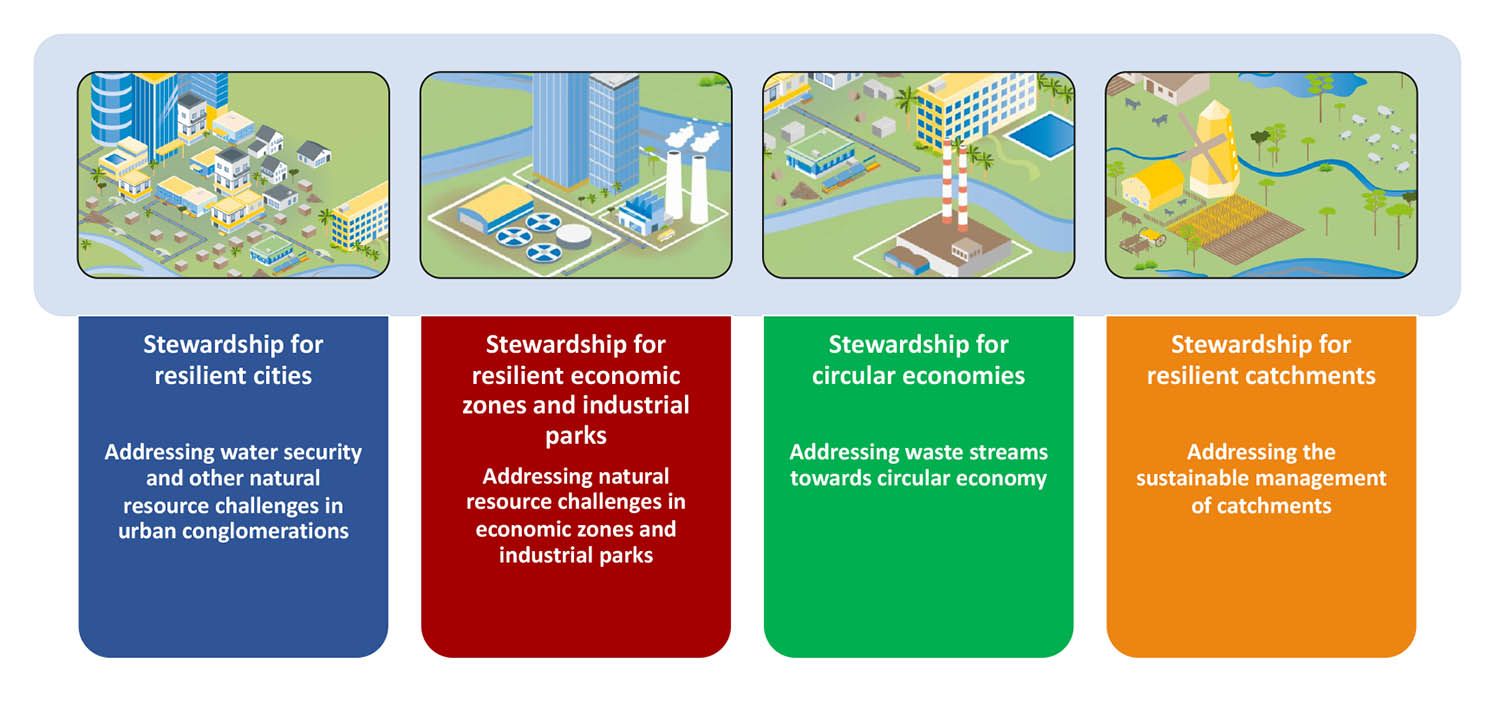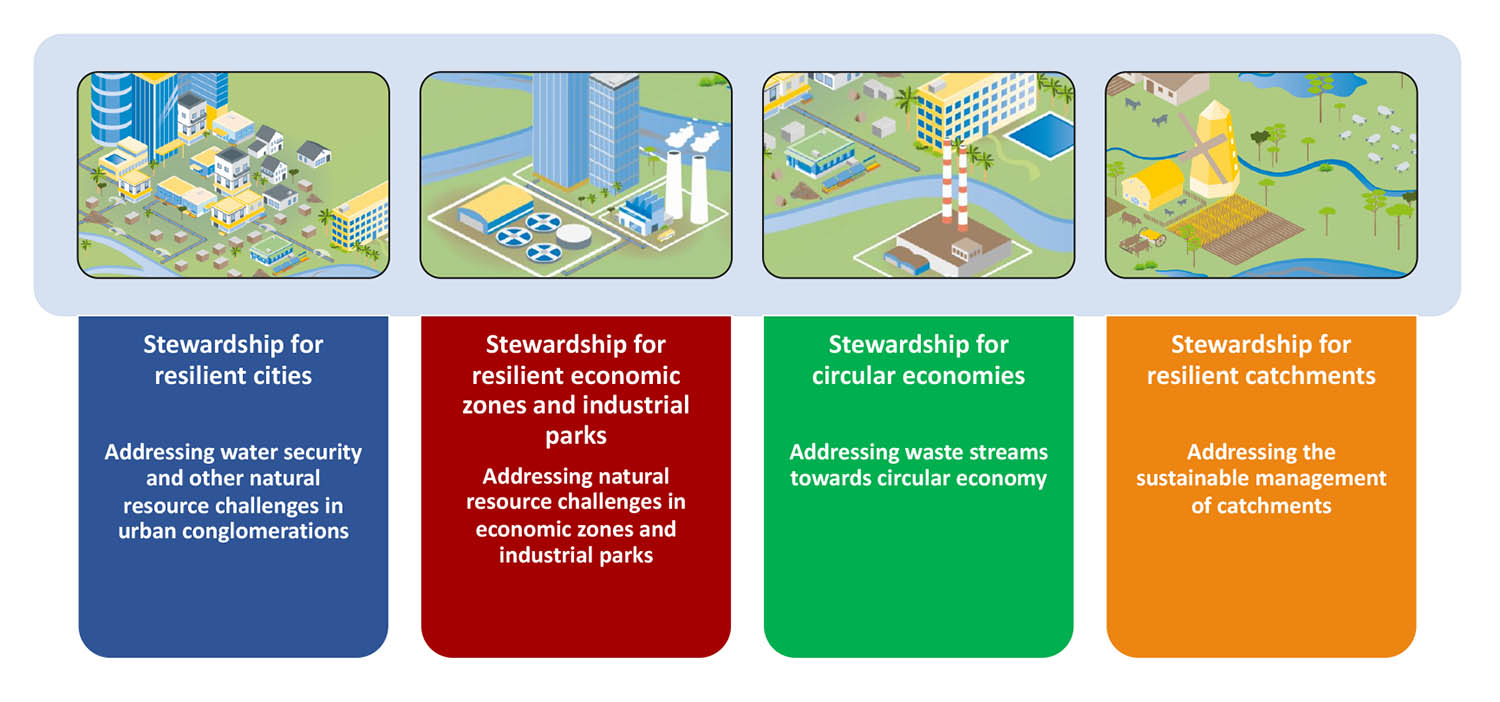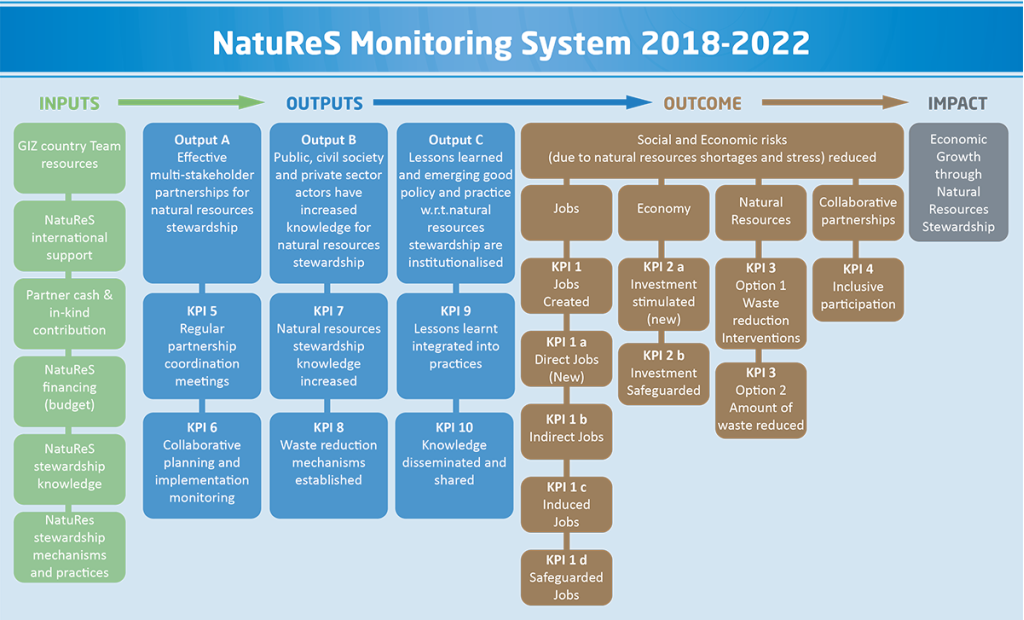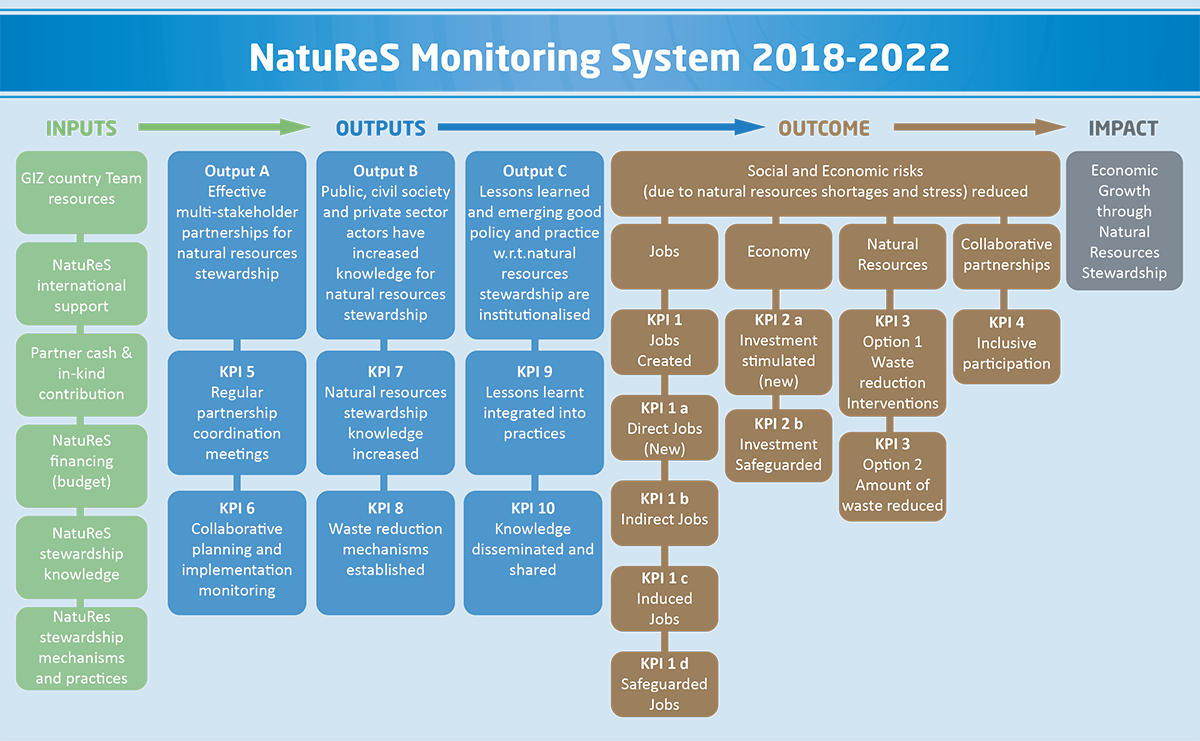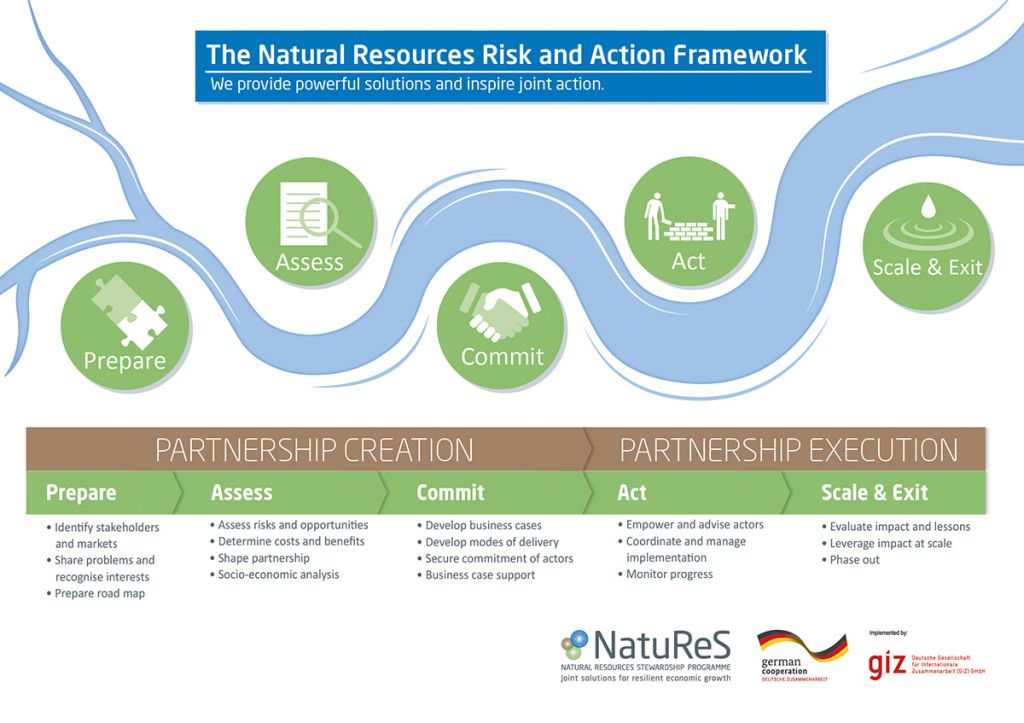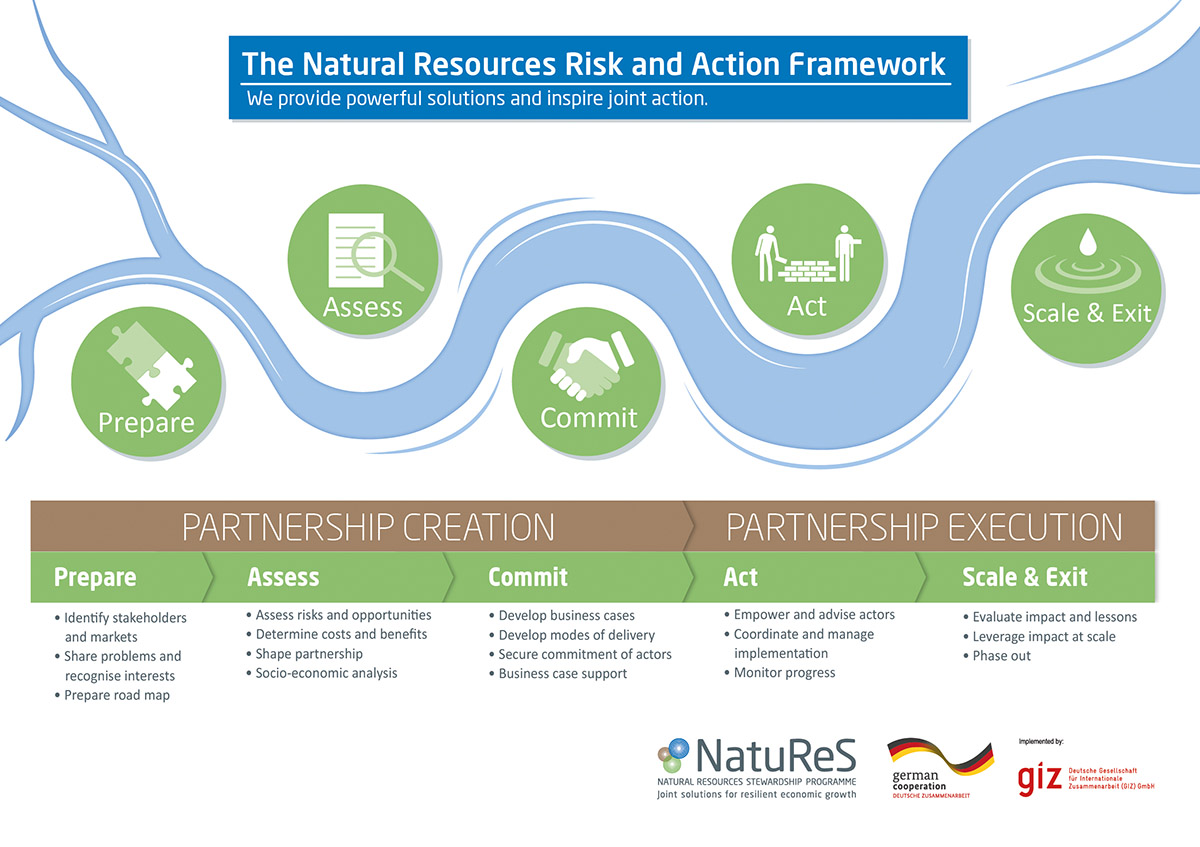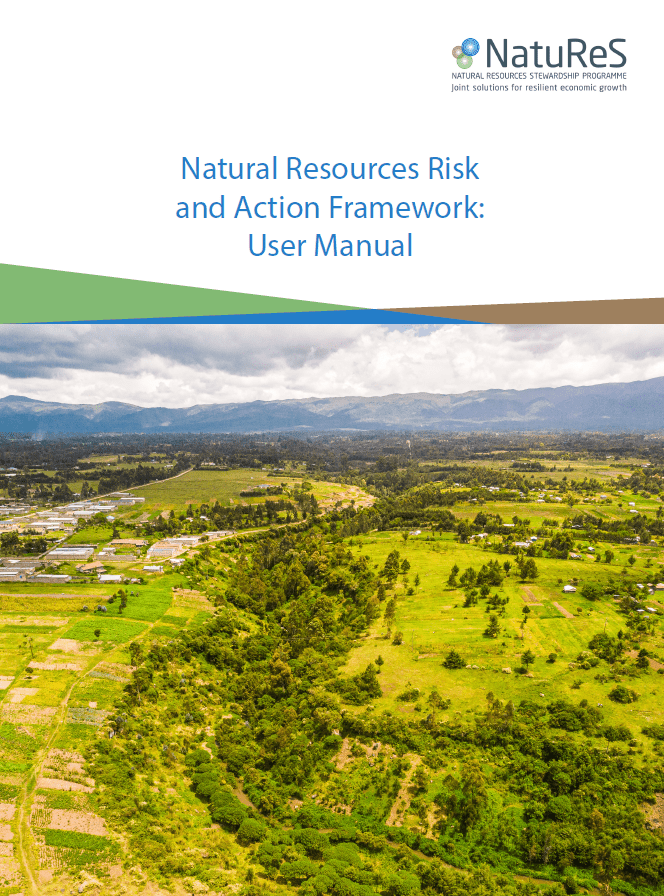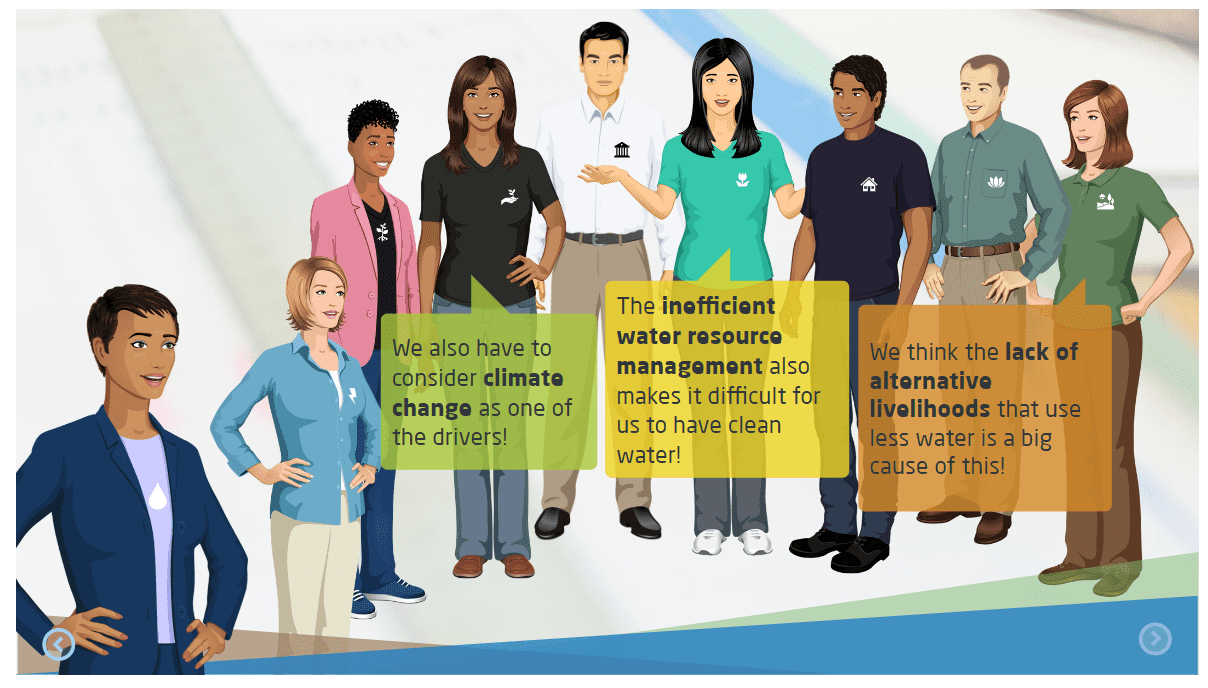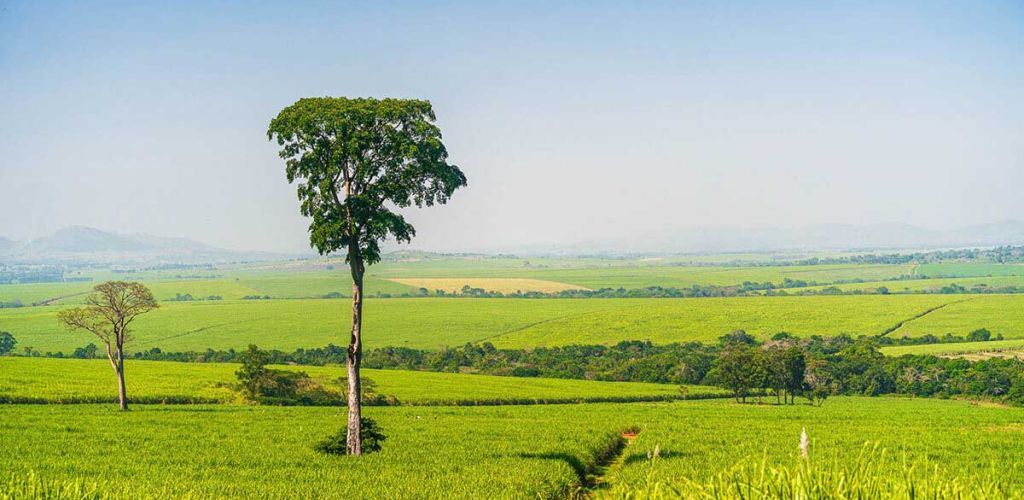
NatuReS’ Vision: Preserving Natural Resources
The Natural Resources Stewardship Programme (NatuReS) enables private-public-civil society partnerships to manage the natural resources they need for sustainable growth and better livelihoods. The programme’s vision is a world where all stakeholders collaborate to sustainably utilise the planet’s life-supporting natural resources for inclusive and resilient economic growth.
How NatuReS supports the management of Natural Resources
With its proven expertise, tools and approaches, NatuReS empowers stakeholders to collaborate in mitigating risks and realising opportunities. For this purpose, the programme promotes a stewardship approach based on participatory governance.
Stewardship is about taking care of something that we do not own.
Natural resource stewardship is defined as “a use of natural resources that is socially and culturally equitable, environmentally sustainable, and economically beneficial”. To achieve this, public, private and civil society actors work together in an inclusive process to develop solutions for joint challenges. The programme’s key focus areas include: the improvement of resilience in catchments, cities and industrial zones, and the promotion of circular economies.
NatuReS focuses on four working areas to enhance Natural Resource Stewardship.
Who is Behind NatuReS
NatuReS is funded by the German Federal Ministry for Economic Cooperation and Development (BMZ), the European Union, and the UK Foreign, Commonwealth & Development Office (FCDO), and implemented by the Deutsche Gesellschaft für Internationale Zusammenarbeit (GIZ) – a trusted partner within the international community of natural resource stewardship practitioners.
The programme is currently active in Ethiopia, South Africa, Tanzania, Uganda and Zambia
Contribution to the Sustainable Development Goals
NatuReS partnerships are aligned to the UN 2030 Agenda for Sustainable Development and engage in several activities that contribute to key Sustainable Development Goals (SDGs).
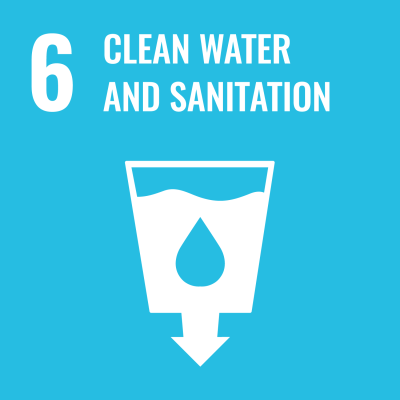
Enabling the efficient management and security of water for businesses, communities and governments (UN Sustainable Development Goal 6)
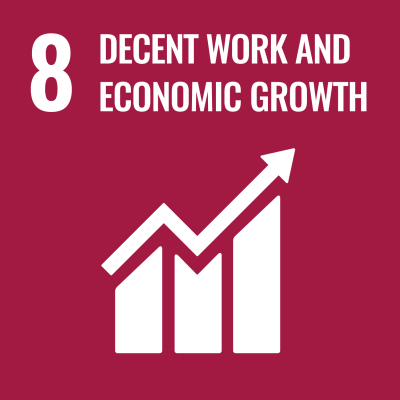
Promoting sustainable and inclusive economic growth for businesses, communities and governments (UN Sustainable Development Goal 8)
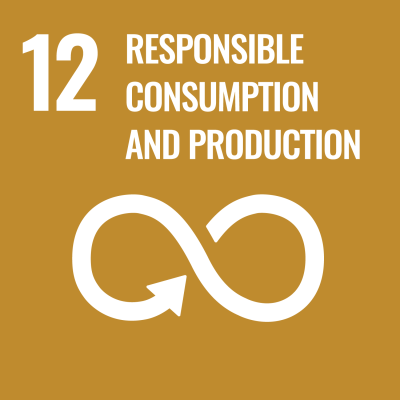
Ensuring the availability of the world’s economic- and life-sustaining natural resources for future generations (UN Sustainable Development Goal 12)
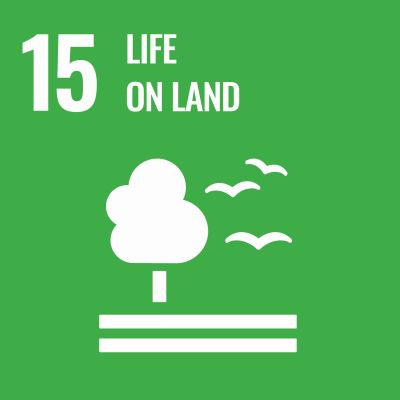
Protect, restore and promote sustainable use of terrestrial ecosystems (UN Sustainable Development Goal 15)
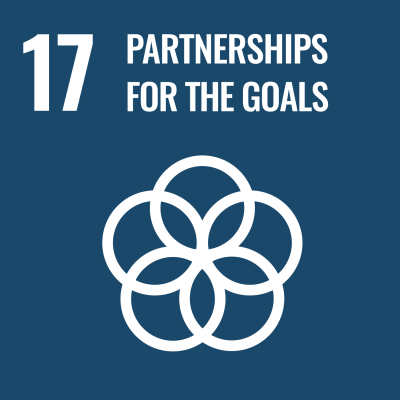
Realising the potential of collaboration between the private sector, governments and civil society (UN Sustainable Development Goal 17)
Strategic Partners
Since 2014, NatuReS (formerly IWaSP) is a strategic partner of the Alliance for Water Stewardship (AWS). As a programme we support the advancing of global standards of stewardship, and we seek to ensure alignment wherever possible. We further promote these principles in our partnerships, as well as in our advisory work on water resource efficiency in companies and economic zones.
NatuReS also supports the CEO Water Mandate, which is a water sustainability initiative by large international corporations to meet water scarcity problems. The CEO Water Mandate is one of many initiatives within the UN Global Compact – a voluntary pledge among the world’s largest businesses to act towards sustainability.
Alliance for Water Stewardship
The Alliance for Water Stewardship is a global collaboration of businesses, NGOs and the public sector. Its members adopt and promote the International Water Stewardship Standard. This framework, also known as AWS Standard, encourages and rewards the sustainable use of water resources. Participants work collaboratively to understand and address water challenges, risks and opportunities within a catchment context.
CEO Water Mandate
The CEO Water Mandate is a platform for business leaders to address global water challenges by adopting corporate water stewardship. Over 180 companies from various industry sectors and regions around the globe have committed themselves to understand and manage water risks related to their businesses. Governments, civil society organizations and other stakeholders support this special initiative of the UN Secretary-General and the UN Global Compact Together with the Pacific Institute these key partners form the CEO Water Mandate Secretariat.
NatuReS’ Monitoring and Evaluation System
NatuReS has developed a monitoring and evaluation (M&E) system in order to capture and report on the activities implemented and the results achieved. It focuses on higher level results of impact, outcome and outputs.
The system’s well formulated monitoring plan details the programme objectives and key performance indicators. Additionally, its monitoring and evaluation team has a Regional Coordinator and Monitoring and Evaluation Advisors in each country. With these measures, NatuReS has been able to successfully translate the programme objectives into intervention planning and daily programme operations.
Furthermore, continuous monitoring mechanisms and biannual reporting effectively capture, analyse and report results to the German Federal Ministry for Economic Cooperation and Development (BMZ), our donors and partners. Evaluations have consistently served as a mirror from which the innovative programme derives lessons that have helped refine the programme’s strategy over the years.
NatuReS’ M&E system helps to capture the programme’s activities and achievements.
Achievements
Together with its donors, NatuReS has set 10 ambitious targets. Their purpose is to measure the programme’s contribution to its overarching goal: economic growth through natural resource stewardship. The targets are divided into two groups: Outcome targets aim to reduce social and economic risks due to natural resources shortages in the programme areas. Output targets contribute to the outcome targets. The achievement of the targets is measured through key performance indicators (KPIs).
Outcome: Social and economic risks due to natural resource shortages are reduced
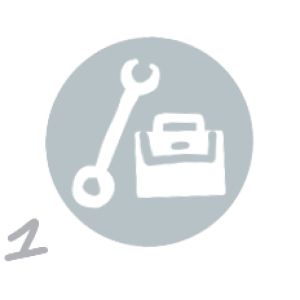
KPI 1: Jobs are created or safeguarded in the medium term within the framework of the supported partnerships.
Achieved: 123,592
Target: 66,000
Decreasing stress due to shortages of natural resources leads to better prerequisites for economic activity. It allows companies to maintain and expand their businesses. By mitigating social and natural resources risks, NatuReS contributes to the safeguarding of existing and the creation of new jobs.
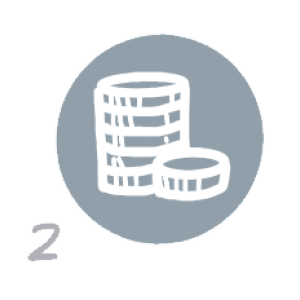
KPI 2: Investments are safeguarded or newly provided within the framework of the supported partnerships.
Achieved: € 289,094,625
Target: € 180,000,000
By mitigating existing risks, NatuReS contributes to the safeguarding and upholding of economic activity. If companies and entrepreneurs are confident that the future holds less risks related to natural resources, they invest additional funds in expanding their businesses. This boosts economic growth and increases people’s prosperity.
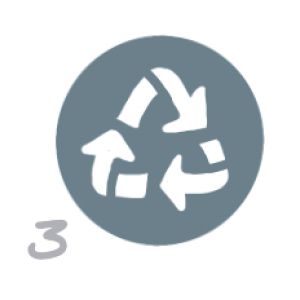
KPI 3: Mechanisms to reduce waste have each led to at least three interventions aimed at actually reducing waste.
Achieved: 15
Target: 6
Waste that is not orderly processed poses a major risk for the preservation of natural resources. It is also a serious health risk for people. By decreasing the amount of waste that is going into the environment, NatuReS contributes to healthier living conditions and cleaner natural resources like, among others, water and soil.
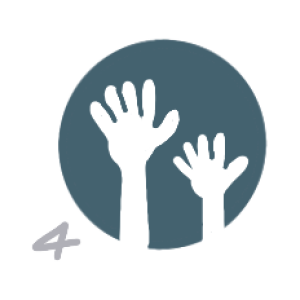
KPI 4: Based on an average across six partnerships from the five countries, 75 percent of respondents confirm that they have improved political participation in the management of natural resources.
Achieved: 6
Target: 6
Inclusive participation is one of the pillars of natural resources stewardship. The success of the partnerships depends on whether different stakeholders can represent their interests through it.
Output A: Partnerships for improved multi-stakeholder stewardship of natural resources are effective
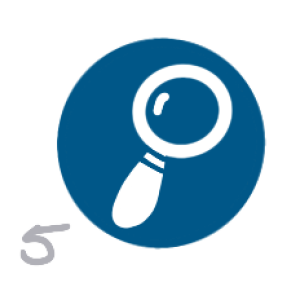
KPI 5: In partnerships, meetings of public, private and civil society actors are held twice a year to monitor progress.
Achieved: 14
Target: 8
All partners (from private and public sectors and civil society organisations) participate in partnership meetings to monitor progress. This allows all stakeholder groups to share information and jointly make decisions, which results in more effective partnerships.
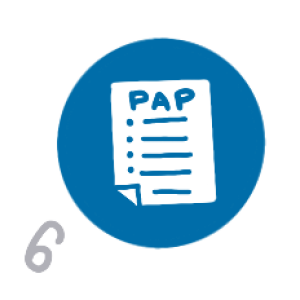
KPI 6: Partnership action plans with defined contributions from the different actors have been developed in the natural resources stewardship partnerships between public and private sector and civil society organisations.
Achieved: 11
Target: 6
Partnership Action Plans clearly allocate responsibilities to the different partnership members and thus give the partnership structure.
Output B: Public and civil society actors as well as the private sector have increased knowledge for natural resources stewardship
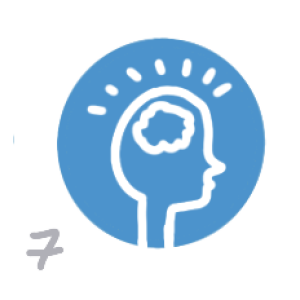
KPI 7: The competence of 80 percent of participants of training measures on natural resources stewardship have increased their knowledge by at least one level, on a five-level scale.
Achieved: 50
Target: 32
Training measures are crucial to building the capacity of assessing and thereupon improving optimal use of natural resources.
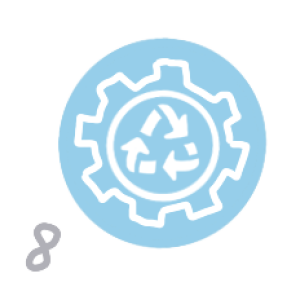
KPI 8: Mechanisms to reduce waste are established.
Achieved: 21
Target: 6
The development of a well-designed mechanism is crucial if interventions to reduce waste are to be successful and have a lasting impact.
Output C: Lessons learned and emerging good policy and practice with regard to natural resources stewardship are institutionalised
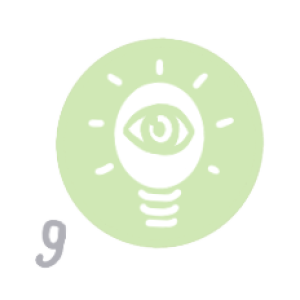
KPI 9: Public, private and civil society organisations (including communities) have integrated lessons of natural resources stewardship into practices, strategies, action plans or guidelines.
Achieved: 55
Target: 14
Disseminating natural resources stewardship is important to ensure the impact beyond the duration of the programme itself. Integration into guidelines or policy, for example, can anchor stewardship in catchments or value chains. This contributes to the mitigation of natural resources related risks and has a positive effect on people’s livelihoods.
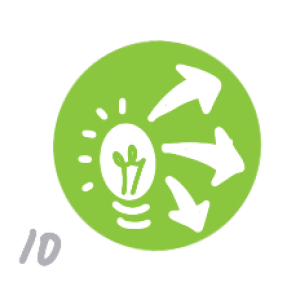
KPI 10: Learning experiences from partnerships between stakeholders from the public and private sector and civil society for improved management of natural resources are taken into account by other partnerships (national or international) in implementation.
Achieved: 3
Target: 2
If partnerships at national and international levels implement the learning experiences from partnerships between the public and private sector and civil society, it will lead to widescale application of natural resources stewardship and the multiplication of resulting impacts.
The Natural Resources Risk and Action Framework (NRAF): NatuReS’ Guide to Sustainable Partnerships
NatuReS’ work relies on the effectiveness of its private-public-civil society partnerships. The idea is that those relying on the same natural resources can only address risks through collaboration. By working together and finding mutually beneficial solutions, partnerships lead to sustainable economic growth. This secures the use of natural resources for generations to come.
A five-step guide for sustainable partnerships
The NRAF guides from the creation to the execution of sustainable partnerships.
NatuReS developed the Natural Resources Risk and Action Framework (NRAF) to tackle shared environmental risks together with stakeholders from affected businesses, communities, and governments.
Arranged in five steps, the NRAF guides stewardship practitioners through
1) Preparing,
2) Assessing,
3) Committing,
4) Acting and
5) Scaling/Exiting
a partnership.
The Natural Resources Risk and Action Framework User Manual
Click on the picture to access the Natural Resources Risk and Action Framework (NRAF) User Manual
Further Information
Download this factsheet for further information.
Or take this free, self-paced online training on stewardship and the Natural Resources Risk and Action Framework to learn more about how to bring together stakeholders from across sectors to jointly tackle risks emerging from the scarcity or endangerment of natural resources:
The training is available on atingi, a free digital learning platform commissioned and funded by the German Federal Ministry for Economic Cooperation and Development (BMZ) and implemented by GIZ.
Building on IWaSP’s Successes
NatuReS is a continuation of the International Water Stewardship Programme (IWaSP) and builds on its many successes. IWaSP was active from 2013 to 2019. This predecessor project has already reached more than 2.7 million people with more than 180 partners in 38 partnerships. Its leveraged private sector investments amount to EUR 15 million.
IWaSP has partnered with over 70 companies. Amongst these are international trading, drinks and agri-food businesses such as Coca-Cola, SABMiller/AB InBev, Marks & Spencer, Heineken, Kinyara Sugar and Olam, as well as many prominent companies in the programme’s project countries.
The lessons learned from the various stewardship partnerships under IWaSP can be found here.
See also IWaSP final annual report (2018-2019).
